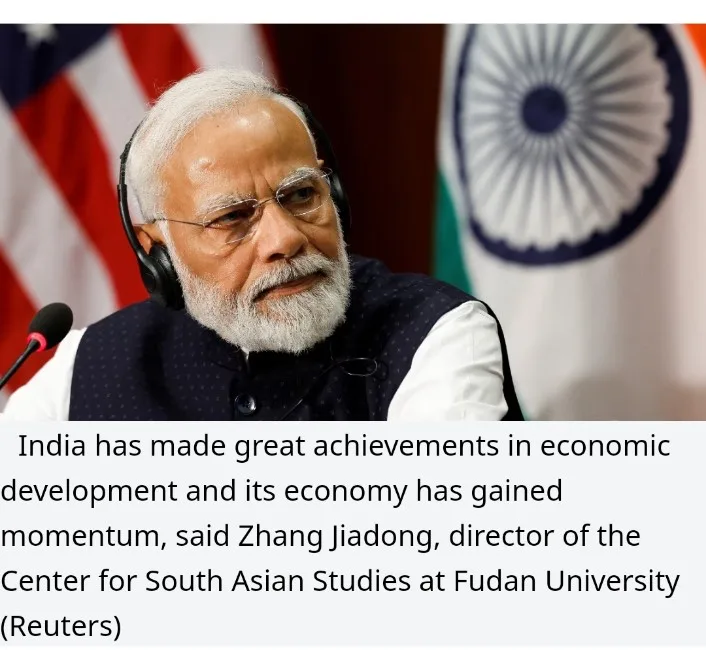In a notable recognition, an article in China’s state-run Global Times has commended India’s progress under Prime Minister Narendra Modi. The piece highlights significant changes in India’s domestic and foreign landscape over the past four years.
According to Zhang Jiadong, director of the Center for South Asian Studies at Fudan University and the article’s author, India has achieved remarkable milestones in economic development. Jiadong suggests that India’s economy has gained momentum, positioning the country as one of the fastest-growing major economies.
Jiadong, who recently visited India for the first time in four years, notes a transformation in India’s strategic confidence and proactivity in crafting a “Bharat narrative.” During talks with Indian representatives, he observed a more relaxed and moderate attitude towards Chinese scholars, indicating a shift in dynamics.
In terms of foreign policy, Jiadong observes India’s rapid transition towards a great power strategy under PM Modi. He points to the multi-alignment strategy, fostering relations with the US, Japan, Russia, and other nations. The author emphasizes that India’s foreign policy has evolved towards a clear great power strategy.
The article also discusses India’s stance on the Russia-Ukraine conflict, noting a distancing from the West and a closer alignment with the developing world. Jiadong highlights India’s reduced reservations about Western powers and increased activities within Western countries, extending beyond diaspora events.
Referring to India’s “Knowledge India Visitors Programme,” Jiadong underscores the emphasis placed by External Affairs Minister S Jaishankar on building a strong “Bharat narrative” in terms of economics, development, politics, and culture.
Jiadong concludes by affirming that India is indeed a major power, presenting rapid changes in internal and external strategies that pose challenges to both the nation and the international community. The article suggests that India’s transformed, stronger, and more assertive role has become a new geopolitical factor for consideration.




